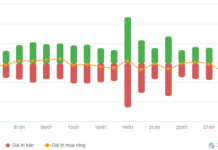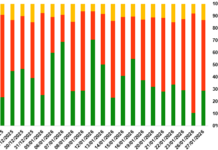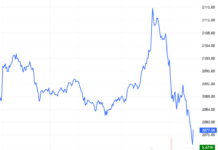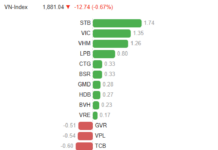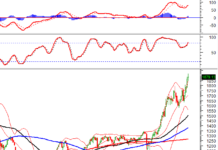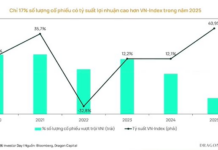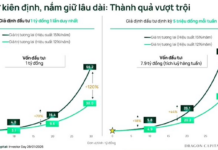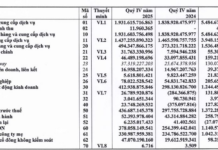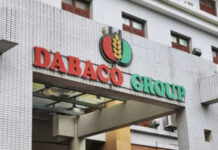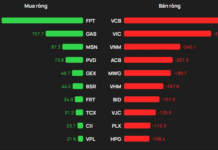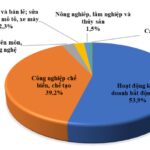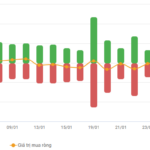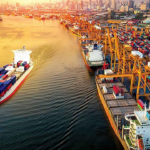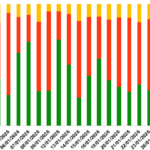Prime Minister: Saving VND 700,000 billion to increase salaries
On July 6, Prime Minister Pham Minh Chinh chaired the regular Government meeting for June 2024 and the Government’s online conference with localities to assess the socio-economic situation, public investment disbursement, implementation of three national target programs, and key tasks for the last six months.
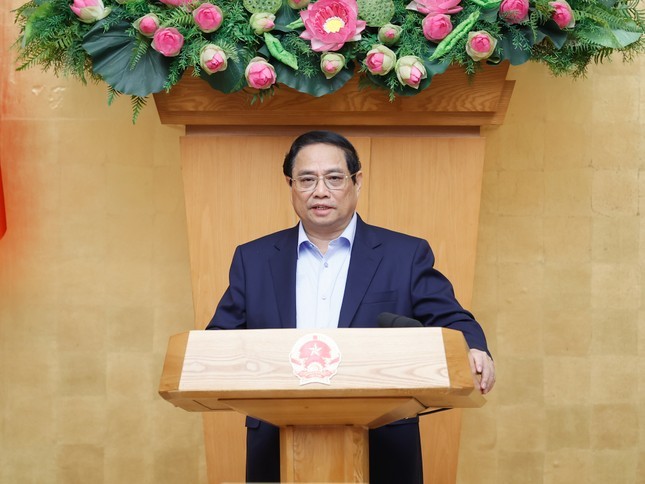
Prime Minister Pham Minh Chinh delivers the opening speech at the conference. Photo: Nhat Bac
In his opening remarks, the Prime Minister highlighted the positive aspects of the economy in the past months, including a GDP growth rate of 6.93% in the second quarter and 6.42% in the first half of the year, surpassing the set target and ranking among the highest in the region and the world. Macroeconomic stability was maintained, with inflation controlled at around 4%.
The Prime Minister also mentioned that approximately VND 700,000 billion has been saved to implement the salary increase from July 1, and appropriate solutions have been proposed to adhere to Resolution 27 of the Central Committee while considering the country’s conditions and ensuring balance and equality among beneficiaries.
Along with the achievements, the Government leader also pointed out existing shortcomings, difficulties, and bottlenecks, such as persistent inflationary pressure, challenges in production and business activities in certain sectors, and a lack of discipline and rigor in some cases, with instances of civil servants and public employees avoiding responsibility or passing the buck.
Biometric authentication enabled for 19 million bank accounts
At the regular Government press conference for June, held on July 6, Deputy Governor of the State Bank of Vietnam (SBV) Pham Tien Dung provided information regarding customers’ difficulties in updating biometric information for their bank accounts.
According to Mr. Pham Tien Dung, the primary purpose of implementing biometric authentication is to clean up accounts, as the new citizen identification cards with chips have replaced the previous multiple paper documents that were prone to forgery.
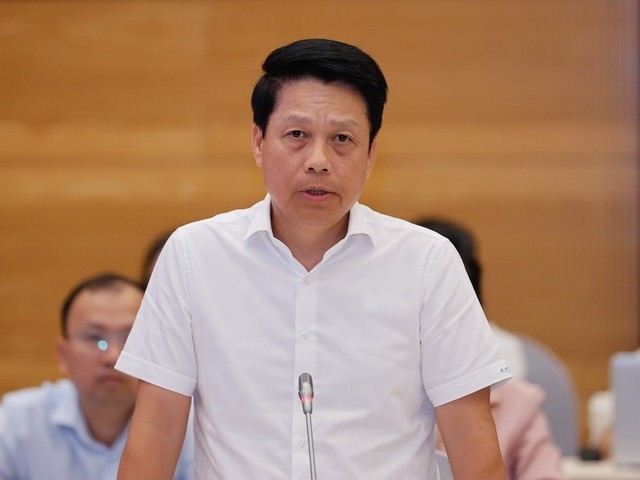
SBV Deputy Governor Pham Tien Dung
The State Bank of Vietnam, in collaboration with the Ministry of Public Security, is working to clean up accounts, and only transactions above VND 10 million will require customers to provide biometric information. “By doing so, we will eliminate fake paper documents,” said Mr. Dung.
Biometric authentication is a straightforward process, explained Mr. Dung. It involves comparing the customer’s face with the image in the database, and if there is a match, the transaction is approved. For transactions below VND 10 million for essential goods, biometric authentication is not necessary.
“On average, transactions above VND 10 million accounted for 8% of the total transactions in June,” informed Mr. Dung.
As of July 5, according to Mr. Dung, banks have verified and cleaned up 19 million accounts using the new citizen identification cards.
Nhon-Hanoi Metro project misses deadline for the 13th time
The Nhon-Hanoi elevated railway project, which began construction in September 2010 and was scheduled for completion in 2015, has yet to commence passenger operations after 14 years of construction (nine years behind schedule).
The latest plan, announced by the Management Board of Urban Railways (MRB), targeted the commencement of operations in June.
However, as of July 1, the trains on the Nhon-Hanoi route have not yet carried passengers, marking the 13th time the project has missed its deadline for operation.
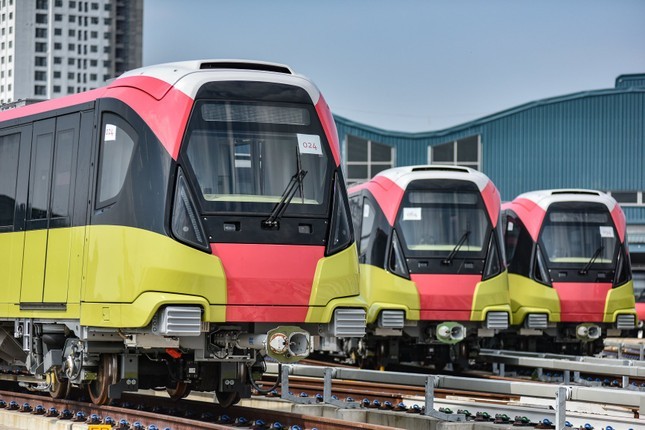
After 14 years of construction and 13 missed deadlines, the Nhon-Hanoi trains have yet to commence passenger operations.
Explaining the delay, a representative of MRB stated that while the construction of the elevated section has been completed, and the ten passenger trains have finished their trial runs, the project is currently undergoing inspections, audits, and approvals for safety certification by relevant authorities. Only after obtaining the necessary certifications can the project proceed with operations on the elevated section.
Xuyen Viet Oil owes over VND 1,700 billion in taxes
On July 6, the Ho Chi Minh City Tax Department announced the list of tax-delinquent enterprises for the fifth time in 2024. This list includes 229 enterprises with a total tax debt of nearly VND 5,000 billion.
Topping the list is Xuyen Viet Oil Trading Transport and Tourism Co., Ltd., located on Hai Ba Trung Street, Vo Thi Sau Ward, District 3, with a tax debt of up to VND 1,740 billion.

Ho Chi Minh City Tax Department provides guidance on tax declaration and payment.
Following Xuyen Viet Oil is a group of six enterprises with tax debts exceeding VND 100 billion, including Construction and Housing Development Corporation with a debt of over VND 330 billion.
The next group comprises seven enterprises with tax debts ranging from VND 50 billion to less than VND 100 billion. The highest debt in this group is VND 93.2 billion, owed by Construction and Transportation Infrastructure Investment Joint Stock Company 584, followed by Thu Duc House Development Joint Stock Company with a debt of VND 91.2 billion, and Asanzo Group Joint Stock Company with a debt of over VND 52 billion.
Further analysis of the tax debt list reveals that 33 enterprises have tax debts ranging from VND 10 billion to less than VND 50 billion, with Vietnam Investment Connection Joint Stock Company at the top with a debt of VND 40.7 billion. Additionally, there are 108 enterprises with tax debts ranging from VND 1 billion to less than VND 10 billion, with Kim Lien Thanh Trading Services Production Limited Company owing the highest amount of over VND 9.8 billion.
Three individuals involved in the SCB case are suspended from auditing public interest entities
On June 25, the State Securities Commission of Vietnam decided to suspend the approval of four auditors from Deloitte Vietnam, including Mr. Le Dinh Tu – Deputy General Director, Mr. Pham Hoai Nam, and two other auditors, Mr. Do Hong Duong and Mr. Tran Van Dang, from signing audit reports for public interest entities in the securities sector for six months.
Mr. Le Dinh Tu and the two auditors, Mr. Do Hong Duong and Mr. Tran Van Dang, were directly involved in the SCB audits for the years 2018 and 2019.
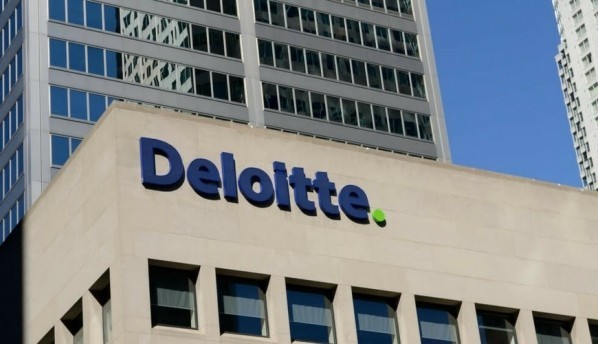
Deloitte conducted the audit for SCB before the irregularities were uncovered.
According to the decision of the State Securities Commission, these auditors will not be allowed to sign audit reports for public interest entities in the securities sector, including public companies, listed companies, registered trading organizations, organizations offering securities to the public, securities companies, etc., for a period of six months.
Deloitte was one of the three auditing firms (along with KPMG and Ernst & Young) that conducted audits for SCB before the irregularities were discovered.
Which province has the highest economic growth in the country?
In the first six months of the year, the country’s gross domestic product (GDP) grew by 6.42%, second only to the growth rate achieved in 2022 during the 2020-2024 period. As the economy continues to thrive across various sectors, the growth of localities has also accelerated.
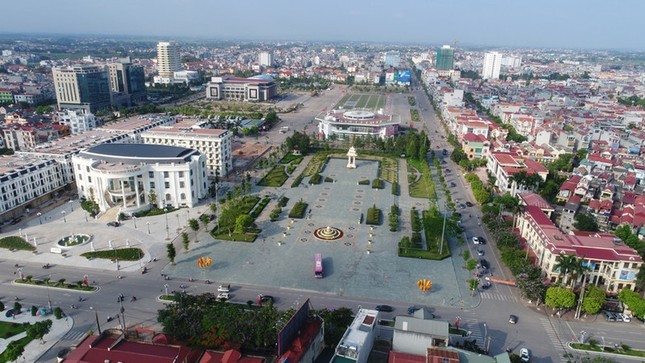
Bac Giang continues to lead in GRDP growth in the first six months.
According to the General Statistics Office, seven localities recorded a growth rate of over 10% in their gross regional domestic product (GRDP), including Bac Giang, Khanh Hoa, Thanh Hoa, Ha Nam, Hai Phong, Tra Vinh, and Hai Duong.
Bac Giang province maintained its top position in economic growth, with an estimated GRDP growth rate of 14.14%. Notably, the industrial production index (IIP) increased significantly compared to the same period last year, reaching an estimated growth rate of 26.45%, and the value of industrial production (at current prices) is estimated at VND 315,145 billion.
According to the Provincial Competitiveness Index (PCI) 2023 report, Bac Giang also ranked fourth out of 63 provinces and cities for the second consecutive year in terms of the quality of governance. However, foreign investment attraction is showing signs of slowing down, and the province faces limitations in terms of land availability for investment attraction, as well as a lack of synchronization between electricity supply infrastructure and transportation, industrial, and cluster infrastructure.
EBITDA Continuously Increases for 4 Quarters, WinCommerce Plans to Open 700 More Stores
In 2023, despite the challenges both domestically and internationally, the retail market in Vietnam is gradually becoming a lucrative investment opportunity and a fiercely competitive battleground. Amidst this backdrop, WinCommerce (a subsidiary of Masan Group) emerges as the solution for an optimized store model, expanding networks, and sustaining market share for Vietnamese businesses…
Prime Minister: State-owned enterprises holding substantial resources need to be profitable
On the morning of February 5th, Prime Minister Pham Minh Chinh emphasized the importance of profitable operations and increased contributions to GDP growth and the state budget by working with 19 conglomerates and state-owned enterprises. These businesses possess significant resources and must strive to generate more profits.
Restructuring State-owned Corporations and Holding Companies
Prime Minister Pham Minh Chinh proposes restructuring state-owned conglomerates and corporations in three areas: administrative restructuring, financial restructuring, and restructuring of industries and input materials.

